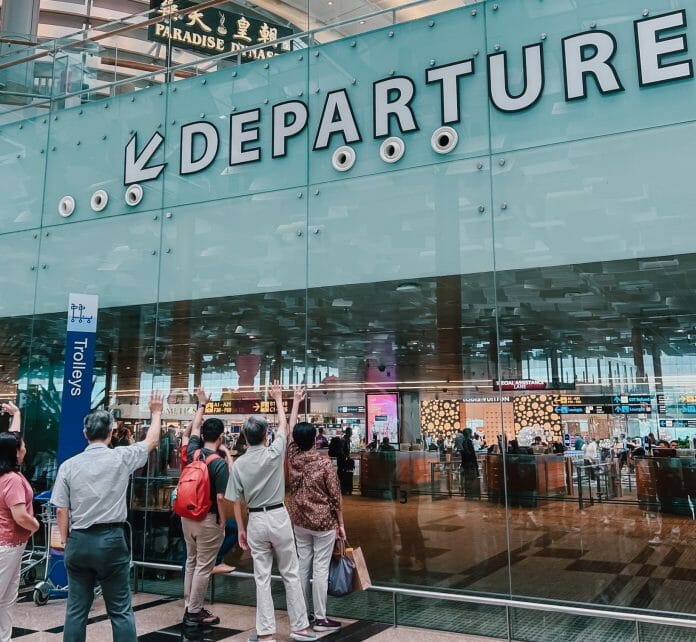Singapore has announced that from the first half of 2024, passengers departing Changi Airport will go through automated immigration clearance using biometric data, with no passports needed.
This comes after its parliament on Monday (Sep 18) passed a series of amendments to the Immigration Act.
One key provision is for the Minister for Home Affairs to authorise the disclosure of passenger and crew information to the airport operator, for specific uses such as bag drops and passenger tracing within the airport.
This allows for end-to-end biometric clearance, meaning the passenger does not need to produce their passport, ticket, and boarding pass multiple times during the boarding process.
Instead, biometrics will create a “single token of authentication” that passengers can use at various automated touchpoints, said Second Minister for Home Affairs Josephine Teo on Monday.
The Bill also contains changes to better deal with exigencies such as pandemics, strengthen border controls and streamline the administration of passes and permits for foreigners and permanent residents (PRs).
It provides for powers to collect advance passenger and crew information across all modes of entry, and to issue no-boarding directives to airlines and other transport operators to deny “undesirable persons” from boarding at the point of departure for Singapore.
Another change is to clarify when a PR is deemed to have lost their status. A re-entry permit is required whenever a PR travels outside of Singapore.
Currently, a PR overseas without a valid re-entry permit is considered to have lost their PR status, with a grace period of one month after the permit has expired to apply to reinstate their status.
The new Bill requires a PR who is outside Singapore and without a valid re-entry permit to apply for one within a prescribed period, failing which their PR status will be lost immediately. The Ministry of Home Affairs intends to set this prescribed period at six months.
“Given that six months is more than enough for PRs to regularise their status, there will be no avenue for reinstatement once a PR loses his PR status in accordance with the revised framework,” said Mrs Teo.
The individual will then have to make a fresh application to become a PR again.
The amendments facilitate the Immigration and Checkpoints Authority’s (ICA) New Clearance Concept, announced in 2019, which aims to make automated clearance the norm at checkpoints.
Traveller volume has continued to rise across all of Singapore’s checkpoints, according to Mrs Teo. It is expected to return to pre-pandemic levels by 2024, and to increase after that.
Even as new facilities – like Changi Airport Terminal 5 and the Johor-Singapore Rapid Transit System Link – are being built, ICA will have to cope without a significant increase in manpower, said Mrs Teo.
Security threats, including terrorism, and pandemics also require going “upstream” in immigration measures, like collecting passenger information in advance and imposing entry restrictions before “undesirable persons” arrive at checkpoints, she added.









